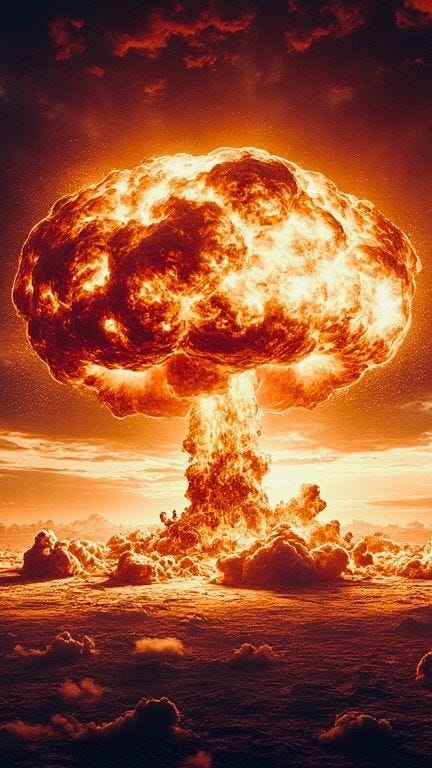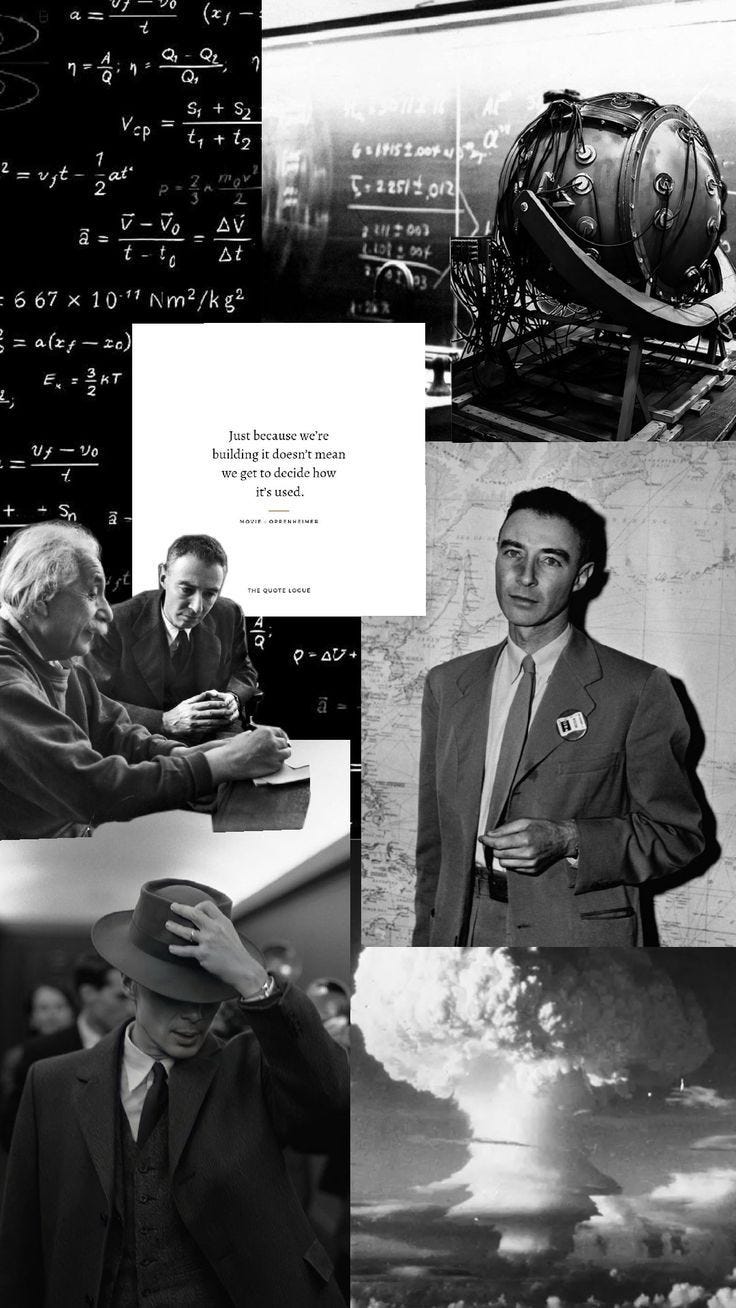Search This Blog
Aspiring cabin crew or curious reader? You’re in the right place. I offer 1:1 cabin crew consultations based on real industry experience—training, interviews, and life in the skies. Not pursuing aviation? I also write for readers who enjoy topics like life, mindset, and relationships—there’s something here for everyone. 👉 Book a Consultation | 📖 Read the Blog
Followers
Book Now!
- Get link
- X
- Other Apps
Oppenheimer made me ask: Who really invented the atomic bomb, and was it necessary to drop it on Japan?
After watching Oppenheimer, a question lingers: Who truly began the nuclear war?
The origins of the atomic bomb, its devastating impact on Japan, and the emotional burden it left on humanity, science, and politics.

A Movie that made me question everything
I watched Oppenheimer yesterday.
I was overwhelmed with emotions, swept away by the sheer brilliance of the cinematography, dialogue, and storytelling and the haunting background music that echoed through every scene. It wasn’t just a movie; it was a journey into the minds of the greatest scientists who ever lived: a glimpse into an era where science wasn’t just learned, it was lived.
As the story unfolded, I found myself drawn into the world of nuclear physics: not as a concept, but as a force that shaped the course of modern history. I read countless papers, rewatched scenes, and tried to imagine what it must’ve felt like to stand in Oppenheimer’s shoes.
But one question wouldn’t leave my mind:
Who actually started the nuclear war?
The race begins: The Soviet threat & Einstein’s letter
If you’re even a little familiar with World War 2 history, you’d know it was the Soviet Union’s interest in nuclear technology that first sparked global alarm.
In 1939, Albert Einstein and physicist Leo Szilard wrote a letter to U.S. President Franklin D. Roosevelt, warning that Nazi Germany might be developing atomic weapons. That letter, seemingly just a page in history, led to the birth of something massive: the Manhattan Project.
This wasn’t the work of one man but a team of brilliant minds: Robert Oppenheimer, Enrico Fermi, Leo Szilard, and others. However, it was Edward Teller, often called the father of the hydrogen bomb, who would later push the boundaries further.
Who came up with the idea of the atomic bomb?
The concept of harnessing atomic energy as a weapon emerged in the early 20th century when physicists began uncovering the secrets of nuclear fission. This all started with ideas of a few unnamed scientists in the Soviet Union who thought developing a nuclear weapon would be of great value. While the unnamed Soviet scientists failed miserably, the United States succeeded early, turning this terrifying theory into a reality.
Fueled by fear, ambition, and the urgency of war, the Manhattan Project succeeded in producing the world’s first nuclear weapons, culminating in a decision that would change history forever.

August 1945: The day the world changed forever
In an effort to bring World War 2 to an end and force Japan into surrender, the United States dropped two atomic bombs:
- Hiroshima (August 6, 1945): “Little Boy” killed an estimated 140,000 people.
- Nagasaki (August 9, 1945): “Fat Man” killed around 70,000 instantly, with tens of thousands more dying in the months and years that followed.
On August 15, 1945, Japan surrendered unconditionally. The war was over, but a much darker chapter had just begun.
The Hydrogen bomb: When power became terrifying
Not long after, the United States developed something even more powerful: the hydrogen bomb, or thermonuclear bomb, designed under Edward Teller’s leadership.
Tested in 1952, it was 1,000 times more powerful than the bombs dropped on Japan. While the atomic bomb ended a war, the hydrogen bomb began something far more ominous: the Cold War and the nuclear arms race.
The unseen cost: Humanity still pays the price.
Humanitarian Crisis
Over 200,000 civilians died as a result of the bombings. Survivors, known as hibakusha, continue to suffer from severe radiation illness, cancer, birth defects, and generational trauma.
Nuclear Fear
Since 1945, the world has lived under the shadow of nuclear annihilation. The Cuban Missile Crisis in 1962 was a terrifying reminder of how close we came to the edge.
Global Tensions
Instead of ensuring peace, nuclear weapons only intensified conflicts. The recent Iran-Israel tensions are proof that the same weapon built to end a war can now ignite one.
Ethical Dilemma
Was it truly necessary to bomb Hiroshima and Nagasaki? Could Japan have surrendered without such destruction? These are questions that haunt both scientists and politicians to this day.
The film Oppenheimer doesn’t answer those questions, but it makes you feel the weight of them.

A few perspectives of great scientists were:
Einstein was deeply shaken and disturbed by the atomic bombings of Hiroshima and Nagasaki. He expressed profound regret and a sense of guilt for his earlier role in initiating the development of the atomic bomb, even though his initial intent was for it to serve as a deterrent. He felt a moral dilemma due to the use of the weapon on civilian populations. Following the bombings, Einstein became a vocal advocate for peace and nuclear disarmament.
J. Robert Oppenheimer’s reaction to the bombings of Hiroshima and Nagasaki was complex, marked by a combination of initial triumph, later regret, and a growing sense of responsibility for the devastating consequences of the atomic bomb. While he initially celebrated the success of the Trinity test and the subsequent bombings, he later expressed deep remorse and a belief that the use of the bomb on Nagasaki was unnecessary.
Other Scientists: Many scientists who had worked on the Manhattan Project experienced a crisis of conscience and actively campaigned for the peaceful use of nuclear energy and against the proliferation of nuclear weapons.
The real question: Whom do we blame?
Should we blame the scientists who gave the world the bomb? Should we hold the politicians responsible for the decision to use it?
The scientists, no doubt, fulfilled their responsibilities. They explored, innovated, and theorized. Most of them never imagined the sheer scale of devastation their work could unleash.
However, it was the politicians, wielding immense power, who ultimately made the decision.
Power doesn’t corrupt: it reveals.
And with great power comes a choice:
To serve humanity or to destroy it
A Final Thought: If Only…
If only the scientists had lived long enough to witness the consequences of their creation, perhaps they would have chosen peace over progress. Perhaps they would have waited, negotiated, and found another way to make Japan surrender.
Maybe the course of humanity would have been different.
But we can’t change the past: what we can do is learn from it so that the future doesn’t suffer the same fate.
- Get link
- X
- Other Apps
Comments
Post a Comment